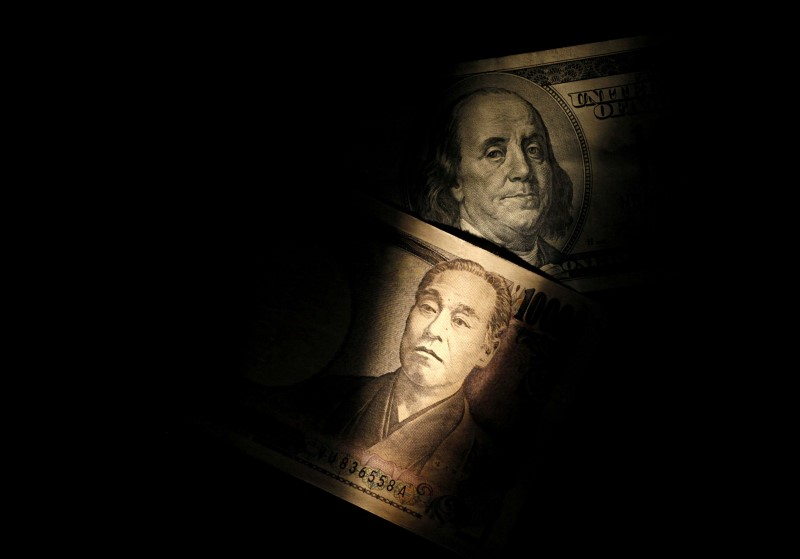By Anirban Nag
LONDON (Reuters) - The yen hit a two-week high against the euro and rose more than 1 percent against the dollar on Tuesday, as traders dialed back expectations of how much new stimulus Japanese authorities will inject into an ailing economy.
Most economists surveyed by Reuters expect the Bank of Japan to expand its asset purchases and cut rates further into negative territory at its two-day meeting that ends on Friday.
Meanwhile the government is compiling a spending package that some sources have estimated could be worth up to 20 trillion yen.
Direct fiscal stimulus may be much lower, with a Nikkei report on Tuesday citing a figure of around 6 trillion yen over the next few years. The total size of the package could be announced as soon as Aug. 2, Nikkei said.
Direct stimulus of 6 trillion yen would be double the amount initially planned but would fall short of market expectations, analysts said.
"There is some position unwinding going on with investors toning down expectations of how much fiscal stimulus will be provided," said Yujiro Goto, currency strategist at Nomura.
"We are also seeing not much pressure from the Japanese government on the BOJ to ease. All this is helping the yen."
The dollar slid 1.7 percent against the yen to 103.995
The yen has weakened in the past few weeks on growing expectations that Japanese authorities would provide both fiscal and monetary stimulus to kick-start inflation. Some had been hoping for helicopter money, where the central bank would underwrite government debt, though policymakers have denied this.
STERLING SLAMMED
Sterling shed 2 percent against the yen (GBPJPY=) and hit a two-week low against the euro (EURGBP=D4) after Bank of England policymaker Martin Weale said he had dropped his opposition to policy easing and now favored immediate stimulus..
The pound also fell 0.5 percent against the dollar to trade at $1.3080
"When the previously hawkish BoE MPC member Martin Weale turns dovish, market participants better listen," said Hans Redeker, head of currency strategy at Morgan Stanley (NYSE:MS).
Meanwhile, the Federal Reserve is expected to stand pat on policy at its meeting that ends on Wednesday. Fed fund futures on Monday indicated that the market sees nearly no chance of a rate hike this week. But the chances of a December hike rose to 56 percent, up from 48 percent on Friday.

The dollar index, which tracks the currency against a basket of six major rivals, was down 0.3 percent to 97.003 (DXY), off a high of 97.569, its loftiest peak since March.